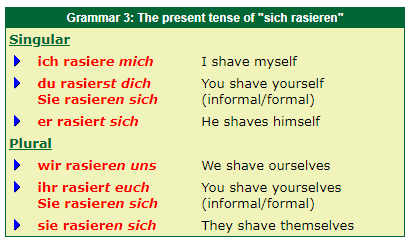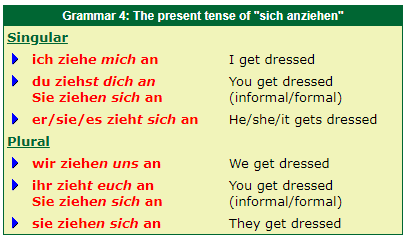Present tense of reflexive verbs taking an accusative pronoun
The present tense of a reflexive verb consists of a verb with the normal present tense endings followed by the reflexive pronoun in the appropriate case.
The only difference between reflexive pronouns and the personal pronouns which we have encountered in previous chapters is that the reflexive pronoun is sich in the formal "Sie" form as well as in the third person singular and plural.

If the reflexive verb is also separable, then the separable prefix of the verb will follow the pronoun (and any other elements of the clause). Of the verbs which we have encountered so far, this is true for sich anziehen, sich ausruhen, sich ausziehen and sich vorstellen:

 英语
英语 日语
日语 韩语
韩语 法语
法语 西班牙语
西班牙语 意大利语
意大利语 阿拉伯语
阿拉伯语 葡萄牙语
葡萄牙语 越南语
越南语 俄语
俄语 芬兰语
芬兰语 泰语
泰语 丹麦语
丹麦语 对外汉语
对外汉语

